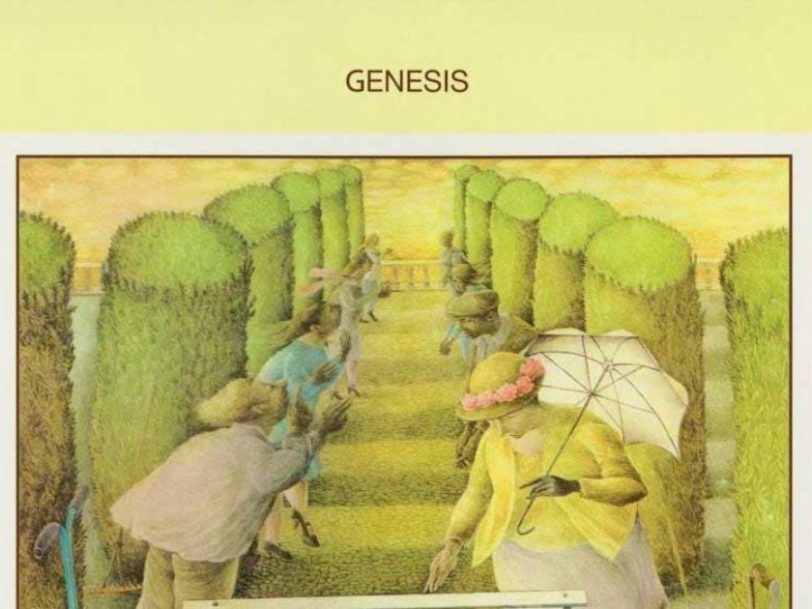Mining the complexity of Western classical music, the baroque eccentricity of English folk and the allure of medieval storytelling, Genesis’ Selling England By The Pound album marked the high point of the Peter Gabriel-led incarnation of the group. Seeking inspiration in English literature and mythology, Gabriel’s verbose lyricism poured out of him as if he were a crazed poet, outstripped only by the outlandish outfits he would wear onstage during the band’s live shows.
Musically, the rest of Genesis – guitarists Tony Banks and Steve Hackett, bassist Mike Rutherford and drummer Phil Collins – were at the peak of their creative powers, too, dabbling in long-form arrangements to accompany Gabriel’s seer-like visions. Aiming to follow their 1972 album, Foxtrot, with something more off-kilter and unique that would appeal to anglophiles both at home and abroad, Selling England By The Pound gave weight to English lore and further established Genesis as one of the biggest prog-rock bands of the 70s.
“‘Selling England’ was very English. It wasn’t bucket and spade English… It was this other sense”
After painstakingly rehearsing the songs in early 1973, at Barwell Court, near Chessington Zoo, in Surrey, Genesis convened in West London’s Basing Street Studios with producer John Burns. Against the social backdrop of economic decline in 70s England – a nation beset with union strikes, spiralling inflation and debates over the country’s membership of the European Common Market – the idea of tackling age-old notions of Englishness and making them relevant to modern times seemed counterintuitive, if not downright foolhardy.
However, upon its release, on 28 September 1973, Selling England By The Pound struck a chord with the public, thanks to its mix of convoluted progressive-rock ambition and Gabriel’s hyper-literate pilfering of ancient myths and folk tales. “Selling England was very English,” Steve Hackett said. “It wasn’t bucket and spade English… it was this other sense.” Kicking off with Gabriel’s a cappella plea on Dancing With The Moonlit Knight (“Can you tell me where my country lies?”), the eight-minute album opener introduces a pastoral acoustic melody akin to the broadside ballad Greensleeves before launching into a storming rocker decrying the way in which commercialisation has eroded the spirit of Ye Olde England.




